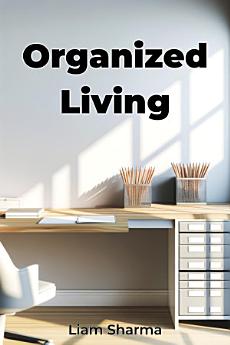Organized Living
About this ebook
What sets Organized Living apart is its blend of empirical rigor and practical solutions. It avoids rigid overhauls, favoring “atomic changes” like the “Five-Minute Reset” decluttering ritual or zoning strategies for high-use areas. The book traces humanity’s relationship with order, from Feng Shui to digital-age challenges, while addressing critiques (e.g., creativity thrives in controlled disorder, per MIT findings). Structured in three sections, it progresses from the science of stress to habit-building techniques, concluding with a 21-day challenge integrating digital and physical decluttering.
Written conversationally with relatable anecdotes—like streamlining meal prep through pantry zoning—it frames tidiness as dynamic self-care, offering adaptable tools for overwhelmed professionals and caregivers. By merging behavioral economics with minimalist principles, the book turns daily organization into a pathway to resilience, combating decision fatigue one small habit at a time.








